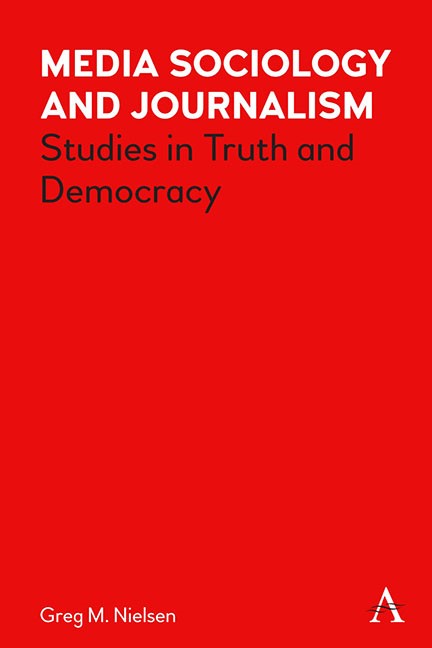Book contents
- Frontmatter
- Contents
- Acknowledgments
- Introduction: Between The Posts
- 1 Fake Populism and News: Freedom versus Democracy
- 2 Political Theory: Deliberative, Agonistic and Dialogic Democracy
- 3 Contemporary Sociology, Journalism and Society
- 4 Acts of Journalism: Truth, Ghosts and Migrant Subjects
- 5 Writing Inequality into the Urban Commons
- 6 Exotopy and Cultural Boundaries: The Secular Question in Quebec
- Conclusion: Is Another Journalism Possible?
- References
- Index
Conclusion: Is Another Journalism Possible?
Published online by Cambridge University Press: 15 November 2023
- Frontmatter
- Contents
- Acknowledgments
- Introduction: Between The Posts
- 1 Fake Populism and News: Freedom versus Democracy
- 2 Political Theory: Deliberative, Agonistic and Dialogic Democracy
- 3 Contemporary Sociology, Journalism and Society
- 4 Acts of Journalism: Truth, Ghosts and Migrant Subjects
- 5 Writing Inequality into the Urban Commons
- 6 Exotopy and Cultural Boundaries: The Secular Question in Quebec
- Conclusion: Is Another Journalism Possible?
- References
- Index
Summary
Deeply opposing truth claims in society and journalism and broad epistemic divides where each side takes the other’s “truth” to be an existential threat, are entering a new phase. The world order is quickly shifting around the Russian invasion of Ukraine. President Zelensky’s pleading with allies to assist in a total war for democracy changed global public opinion and opened many locked doors. In less than thirty minutes, Germany turned decades of pacifist policy on its head voting to better arm itself and join the cause. Authoritarian leaders in Poland, Hungry and Turkey have also rallied to the call and even the traditionally neutral countries of Finland and Sweden are forced to take a stand. On the other side, Russia, China, North Korea and Iran are already behind a curtain so opaque barely a crack is left to see what support or resistance they might yet offer Mr. Putin. Like Korea or Vietnam and other proxy wars fought by the United States and its allies, it is again happening with a foreground threat of a nuclear response. The ghost of the undecidable will surely appear now given the NATO alliance has promised not to intervene militarily to stop what is becoming a genocide of civilians turned into suicide soldiers as millions of women and children leave or are displaced. All of this is brought to us by journalists and much of it is portrayed not just on cable television but available through real cell phone video time.
While the trend for social media over the last decade points toward a more nefarious effect on democracy, the biggest surprise may turn out to be how quickly social media can be used to create a democratic citizen’s army. As Newton (2022) puts it: “This is a surprise for social networks seemed to play a key role in democracy’s doom loop.” Recall that social media platforms began as profit-seeking businesses without borders. As 2.0 communications began narrowcasting and creating interactive communities, they emancipated users from authorities and media gatekeepers by substituting a journalisme vérité or direct local citizens posting of information and opinion in place of submitting to editorial checks, press councils, and professional norms. Citizen’s journalism enjoyed a brief period of revolutionary promise before the model would give way to something more nefarious.
- Type
- Chapter
- Information
- Media Sociology and JournalismStudies in Truth and Democracy, pp. 179 - 186Publisher: Anthem PressPrint publication year: 2023



